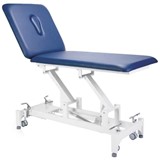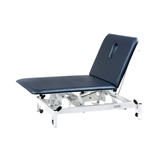A researcher from The University of Western Australia and the Harry Perkins Institute of Medical Research has worked with collaborators at The University of the Sunshine Coast and Virginia Commonwealth University.
The new Spine Functional Index is a tool which was tested in 10 Australian physiotherapy outpatient clinics on more than 200 patients who had neck and back problems for less than five weeks.
Professor Markus Melloh said the Spine Functional Index focused on the activities of daily living such as shopping, cleaning and gardening.
It was developed from 129 questionnaires with a total of 409 items involving input from physiotherapists, general practitioners, occupational therapists and occupational physicians.
Professor Melloh said the index had received wide interest in the medical community and had now been translated from English to Chinese, German, Spanish and Turkish, with more languages to follow.
"Rather than just concentrating on the neck or back, we've designed a tool that suits the whole spine," Professor Melloh said.
"This is important because the neck and back are all related when it comes to pain. Symptoms often occur in multiple, interconnected spinal areas. In the spine everything is connected such as links in a chain."
Professor Melloh said that since this concept of a single chain had been adopted for the spine, researchers had developed five questionnaires about the whole spine — however each had had limitations and had not been practical.
"We found that this new tool was a lot easier to read and much less prone to error," he said. "It will make the treatment of patients with neck and back problems much easier. In the spine it's all about function and how patients cope in everyday life."
The research has been published in a world leading journal The Spine Journal, based in the U.S.







-160x160-state_article-rel-cat.png)








